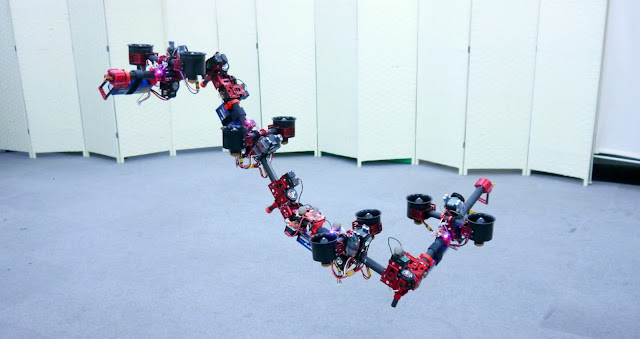The Impact of AI on the Future Job Market: Navigating the Winds of Change
Introduction
In
the 21st century, the rise of artificial intelligence (AI) isn't just a
technological revolution but a transformational workforce that's reshaping the
world as we know it. One of the most critical concerns circling this swift
advancement in AI technology is its effect on job demand. While AI promises
invention, effectiveness, and productivity yield, it also raises questions
about the expulsion of conventional jobs and the emergence of new career
openings. In this blog, we will dig into the multifaceted impact of AI on the
coming job demand in the market.
The
Automation Conundrum
AI
and automation can automate iterative, manual tasks across varied industries,
from manufacturing and farming to client service and data entry. As AI-powered
systems get more sophisticated, the concern is that certain jobs may become
redundant. For example, self-driving vehicles could replace truck drivers, and
chatbots might replace call center working personnel. This automation conundrum
is frequently the first aspect of AI's impact on jobs that comes to mind.
However,
it's significant to note that automation does not unavoidably equate to job
loss across society. Rather, it frequently leads to a transformation of job
positions. Multiple experts argue that while some jobs may be automated, new
positions will arise to evolve, maintain, and oversee AI systems. These
positions include AI engineers, data scientists, machine learning experts, and
AI ethicists. Hence, the AI revolution together threatens and creates job
openings.
New
Job Roles and Skills
While
some jobs may be replaced by AI, the emergence of new job positions and the
demand for specific expertise are also anticipated. AI technology requires
proficiency in areas similar to machine learning, data analysis, and algorithm development.
As a result, there will be a rising need for professionals with these skills.
Also, jobs that need mortal creativity, critical thinking, and emotional
intelligence are likely to stay in demand. These include work in strategic
planning, invention, problem-solving, and client-handling experience.
Upskilling
and Reskilling
As
AI technology evolves, the manpower must adapt to stay applicable in the job
demand. This adaption entails upskilling and reskilling. To thrive in the age
of AI, workers need to develop new skills, grasp digital knowledge, and deduce
AI's capabilities and limitations. Lifelong knowledge has become a necessity
rather than a luxury.
Furthermore,
educational institutions and businesses play a vital part in smoothing this
transition. Collaborative efforts are required to develop training programs and
courses that prepare beings for the jobs of the future. Governments and
companies must invest in programs that support workers in acquiring the
necessary expertise, guaranteeing that AI's impact on the job demand isn't
spoiled by a skills gap.
The
Gig Economy and Remote Work
AI
is also reshaping the character of work itself. The gig economy is on the rise,
with platforms and marketplaces connecting employers to experienced workers on
a project base. Remote work, empowered by AI-driven communication and
collaboration tools, has become gradually common. This shift provides both
flexibility and challenges for employees.
AI's
Role in Human- AI Collaboration
Rather
than outright job substitutes, a more promising view of the future envisions
human-AI collaboration. AI can amplify human capabilities by handling mundane
chores, processing vast volumes of data, and giving valuable perception. In
domains like healthcare, finance, and research, AI can aid professionals in
making more informed conclusions, eventually improving job quality and
productivity.
Ethical
and Social Considerations
As
AI becomes deeply assimilated into the workplace, ethical concerns about
privacy, partiality, and job discrimination come to the front line.
Organizations must prioritize responsible AI practices and guarantee that AI
technologies align with societal values. This includes addressing issues of
fairness, transparency, and accountability in AI systems.
Conclusion
The
impact of AI on the coming job demand is indisputable, and its effects are
multifaceted. While concerns about job expulsion exist, so do chances for those
who can acclimatize and develop applicable skills. The future of work is likely
to involve a combination of human-AI collaboration, nonstop learning, and
ethical thoughts to guarantee that AI benefits society as a whole. Embracing
the changes induced by AI and proactively preparing for them will be
all-important for professionals, businesses, and governments as we navigate the
evolving terrain of the job demand in the age of AI.



Comments
Post a Comment